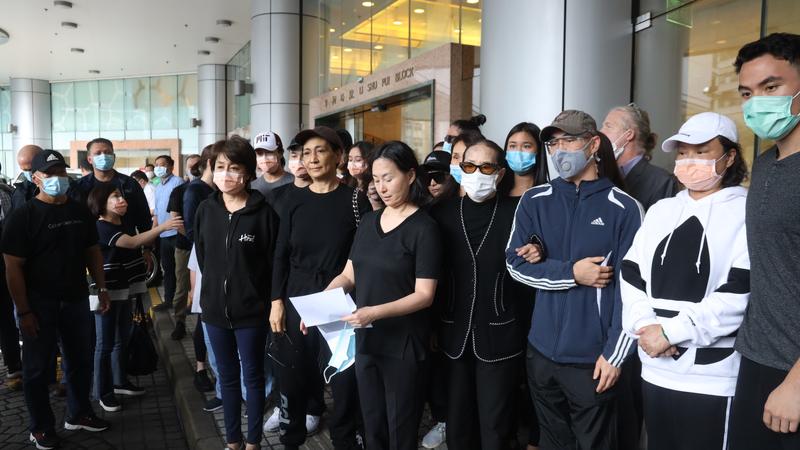 (GRAPHIC DESIGN BY ALEX TANG / CHINA DAILY)
(GRAPHIC DESIGN BY ALEX TANG / CHINA DAILY)
Stanley Ho, a onetime kerosene trader who built a casino empire in Macao that propelled the Chinese island past Las Vegas as the world’s biggest gambling hub, has died at age 98.
Known as the King of Gambling, Ho dominated gaming in the former Portuguese colony after winning a monopoly license in 1961. His SJM Holdings Ltd. flourished as the Chinese mainland’s economic opening created a flood of new wealth in the country
Known as the King of Gambling, Ho dominated gaming in the former Portuguese colony after winning a monopoly license in 1961. His SJM Holdings Ltd. flourished as the Chinese mainland’s economic opening created a flood of new wealth in the country. SJM now controls 20 casinos on an island of about 10 square miles.
Ho died at around 1 pm at the Hong Kong Sanatorium and Hospital, his daughter Pansy Ho Chiu-king told the media alongside family members at the hospital later in the afternoon.
Pansy Ho said she was devastated to share the news. Her father had been highly respected for his contributions to society.
The daughter recalled that Stanley Ho had attached great importance to family education and reminded his children that "everything from the society shall be spent for the society".
She said he had “cherished the people of Hong Kong”.
She said he would always stay in the heart of the family while they would go all-out to continue his legacy, fulfilling the family's social responsibilities.
Chief Executive of the Macao Special Administrative Region Ho Iat-seng on Tuesday extended a condolence message to Ho's family, saying he had made important contributions to the prosperity and stability of Macao.
The chief executive expressed deep condolences to his family, adding that Ho has been benevolent and philanthropic, and cared about the social welfare all his life.
Hong Kong Chief Executive Carrie Lam Cheng Yuet-ngor also expressed deep condolences to Ho's family on behalf of the HKSAR government in a statement issued on Tuesday.
Lam hailed Ho's contributions to Hong Kong, including his participation in the development of Hong Kong's community service and donations to charity organizations, schools and establishment of leisure and cultural facilities.
Born in Hong Kong in November, 1921, Ho served as a member of the Standing Committee of the ninth to 11th National Committee of the Chinese People's Political Consultative Conference (CPPCC).
Ho had also served as member of the Basic Law Consultative Committee of Hong Kong. He was awarded the Grand Bauhinia Medal in 2010.
Ho’s rise transformed Macao from a commercial backwater into the “Las Vegas of Asia” by exploiting its big advantage over the rest of the mainland -- casinos were legal. As his fortune swelled, he expanded beyond the island, building residential and office buildings in Hong Kong. In 1984, he won a license to operate a casino in Portugal and spent US$30 million to open the Casino Pyongyang in the Democratic People's Republic of Korea in 2000.
ALSO READ: Horse-head statue of Old Summer Palace comes home
Ho’s Macao monopoly expired in 2001, two years after China regained control of the island from Portugal. Licenses were granted to competitors, including Sheldon Adelson’s Las Vegas Sands and Wynn Resorts Ltd. Rather than hurting Ho, the increased competition coupled with the mainland’s booming economy accelerated Macao’s growth into the world’s biggest gaming hub and Ho’s fortunes ballooned.
 Stanley Ho's family meets the press outside the Hong Kong Sanatorium and Hospital to announce the death of the gambling tycoon on May 26, 2020. (EDMOND TANG/CHINA DAILY)
Stanley Ho's family meets the press outside the Hong Kong Sanatorium and Hospital to announce the death of the gambling tycoon on May 26, 2020. (EDMOND TANG/CHINA DAILY)
Ho fathered 17 children with four women and when he retired around mid-2018, he passed some of the top roles at SJM to his heirs. Daisy Ho, his daughter, became chairman and executive director. Angela Leong, SJM’s second-largest shareholder whom Ho referred to as his fourth wife, became co-chair with another executive director.
ALSO READ: Stanley Ho cedes empire to heirs in latest Asia tycoon departure
Still, the succession reopened long-simmering family rivalries. In January 2019, Pansy, his eldest daughter with his second wife, joined forces with some siblings in an alliance that holds sway over a controlling stake in SJM, giving her the upper hand over Leong in the fight for the jewel in the crown of Ho’s US$14.9 billion empire. Pansy, one of Hong Kong’s richest people, is also executive chairman of Shun Tak Holdings Ltd., which runs most of the ferries between the Hong Kong and Macao special administrative regions.
Ho was born Nov. 25, 1921, into a wealthy Hong Kong family of Chinese and European descent and attended university in the city. His family’s circumstances deteriorated during World War II, when the Japanese invaded Hong Kong. At age 21, he fled to neutral Macao where he got his start trading everything from kerosene to airplanes, at a time when the island was best known for fishing and producing fireworks and incense.
READ MORE: Macao tycoon Ho makes case for Japan casino in crowded field
Ho was an avid ballroom dancer and a former Hong Kong tennis champion. He won the Chinese Recreation Club doubles competition for older players for several years running into his 80s. Ho also carried the Olympic torch in 2008.
In a press release, University of Hong Kong Vice-Chancellor Zhang Xiang expressed his condolences on the death of Ho.
“The University of Hong Kong community is deeply saddened at the passing of Dr Stanley Ho, our distinguished alumnus. Our thoughts are with his family as we mourn the loss of our loyal friend,” Zhang said.
Chen Zimo contributed to this report


